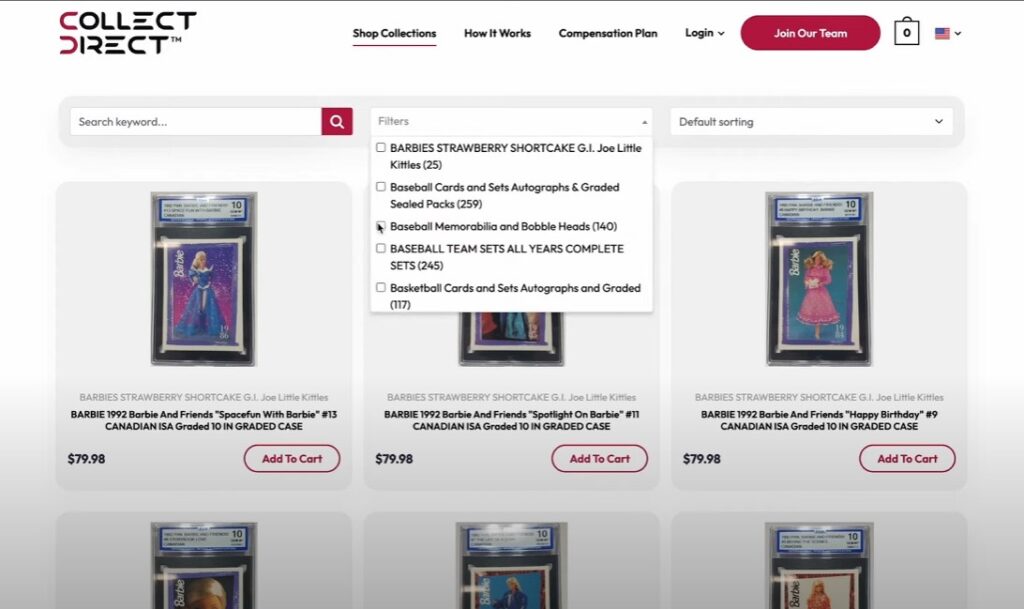Demystifying Card Grading: Understanding the Costs and Process of PSA, SGC, GMA, and ISA Grading

Introduction
In the world of trading cards, card grading has become increasingly important for collectors. Card grading companies such as PSA (Professional Sports Authenticator), SGC (Sportscard Guaranty), GMA (Global Memorabilia Authentication), and ISA (Independent Sports Authenticator) play a crucial role in evaluating and assigning grades to trading cards, impacting their value in the market. This article aims to demystify the card grading process, focusing on PSA, SGC, GMA, and ISA. By understanding the costs and procedures involved, collectors can make informed decisions and ensure the preservation and authentication of their prized collectibles.
PSA Grading: Unveiling the Process and Costs
PSA is widely regarded as the industry standard for card grading. Let’s delve into the step-by-step process and costs associated with PSA grading.
Step 1: Submission and Membership Options
Before submitting cards to PSA, collectors need to determine the most suitable membership option. PSA offers different levels of membership, such as Collectors Club, Silver, Gold, and Platinum. Each membership level comes with its own benefits, including discounted grading fees and access to exclusive services.
Step 2: Grading Criteria and Standards
PSA follows a meticulous grading process based on specific criteria and standards. Cards are evaluated for factors like centering, corners, edges, surface, and overall eye appeal. PSA assigns a numerical grade ranging from 1 to 10, with 10 being the highest.
Step 3: Turnaround Time and Services
The turnaround time for PSA grading can vary based on the service level chosen. PSA offers different service levels, including Standard, Express, and Super Express. Standard service typically takes several weeks, while faster options like Express and Super Express offer quicker turnaround times at an additional cost.
Step 4: Pricing Structure and Additional Fees
PSA employs a tiered pricing structure based on the declared value of the card. The grading fees increase as the card’s value rises. Additionally, PSA offers various services like autograph authentication and reholdering, each with its own associated costs.
SGC Grading: Exploring the Process and Costs
SGC is another prominent card grading company with its own unique process and pricing structure. Let’s uncover the details of SGC grading.
Step 1: Submission and Membership Options
Similar to PSA, SGC offers different membership options. Selecting the appropriate membership level will provide collectors with benefits like discounted grading fees and exclusive services. Determine the membership option that best suits your needs.
Step 2: Grading Standards and Criteria
SGC follows its own set of grading standards and criteria. Cards are evaluated for attributes such as centering, surface, corners, edges, and overall eye appeal. SGC assigns a numerical grade ranging from 1 to 10, with 10 representing pristine condition.
Step 3: Turnaround Time and Services
The turnaround time for SGC grading varies depending on the service level chosen. SGC provides options like Economy, Standard, and Express services. Economy service typically takes longer, while Express service offers expedited grading at a higher cost.
Step 4: Pricing Structure and Additional Fees
SGC employs a straightforward pricing structure that remains consistent regardless of the declared value of the card. The grading fees are generally lower compared to other grading companies. Additional services, such as reholdering and autograph authentication, may incur separate fees.
GMA Grading: Delving into the Process and Costs
GMA, though less well-known than PSA and SGC, provides an alternative option for card grading. Let’s explore the process and costs associated with GMA grading.
Step 1: Submission and Membership Options
GMA offers submission options without requiring membership. Collectors can choose to submit cards directly for grading without any additional membership obligations. This flexibility can be appealing to collectors who prefer a simpler approach.
Step 2: Grading Process and Criteria
GMA follows its own grading process and criteria. Cards are evaluated for several factors, including centering, corners, edges, surface, and overall presentation. GMA assigns a numerical grade ranging from 1 to 10, with 10 being the highest.
Step 3: Turnaround Time and Services
The turnaround time for GMA grading is quicker compared to other grading companies. GMA offers expedited services that ensure faster grading and return of cards.
Step 4: Pricing Structure and Additional Fees
GMA maintains a competitive pricing structure, making it an attractive option for collectors. The grading fees remain consistent regardless of the card’s declared value. Additional services like reholdering and encapsulation may incur separate fees.
ISA Grading: Understanding the Process and Costs
ISA is an independent card grading company that has gained recognition in the industry. Let’s explore the process and costs associated with ISA grading.
Step 1: Submission and Membership Options
ISA offers submission options without requiring membership. Collectors can submit their cards directly for grading without the need for additional membership obligations.
Step 2: Grading Criteria and Standards
ISA follows its own set of grading criteria and standards. Cards are evaluated for attributes such as centering, surface, corners, edges, and overall eye appeal. ISA assigns a numerical grade ranging from 1 to 10, with 10 representing the highest quality.
Step 3: Turnaround Time and Services
The turnaround time for ISA grading can vary depending on the volume of submissions. ISA strives to provide efficient and timely grading services, ensuring a reasonable turnaround time for collectors.
Step 4: Pricing Structure and Additional Fees
ISA maintains a pricing structure that considers the declared value of the card. The grading fees are typically based on the card’s value and complexity. Additional services such as encapsulation and authentication may incur separate fees.
Comparing PSA, SGC, GMA, and ISA: Pros and Cons
Each card grading company has its own strengths and weaknesses. Let’s compare PSA, SGC, GMA, and ISA based on several factors.
Popularity and Reputation
PSA holds the highest level of popularity and recognition within the industry. Their grading standards and consistency have garnered widespread trust. SGC has also established a strong reputation and is known for their strict grading criteria. GMA and ISA, while less popular, provide alternative options for collectors looking for reliable grading services.
Grading Standards and Consistency
PSA and SGC are known for their stringent grading standards and consistency. They follow established criteria and provide reliable grading services. GMA and ISA have their own grading criteria and strive to maintain consistency in their evaluations.
Turnaround Time and Services
PSA’s turnaround times can be longer due to their high demand. However, they offer various service levels to cater to different needs. SGC provides faster turnaround times compared to PSA, making it a preferred choice for collectors seeking quicker grading. GMA and ISA aim to provide efficient turnaround times and prompt return of graded cards.
Pricing and Value
PSA grading fees tend to be higher compared to other grading companies, but the premium attached to PSA-graded cards often justifies the cost. SGC offers competitive pricing, making it an attractive option for collectors. GMA and ISA provide affordable alternatives, allowing collectors with varying budgets to access grading services.
Tips for Submitting Cards to Grading Companies
When submitting cards to grading companies, consider the following tips:
Card Preparation and Protection: Ensure your cards are properly protected before submission, using card sleeves and top loaders to prevent damage during transit.
Choosing the Right Service Level: Evaluate your needs and select the appropriate service level based on turnaround time and cost.
Researching and Understanding Grading Standards: Familiarize yourself with the grading standards of the chosen company to have realistic expectations.
Packaging and Shipping: Package your cards securely, using appropriate materials to prevent any damage during shipping.
By following these tips, you can increase the chances of a smooth and successful grading process.
Frequently Asked Questions (FAQs)
Q: What is the difference between PSA, SGC, GMA, and ISA grading?
A: PSA, SGC, GMA, and ISA are different card grading companies, each with their own grading standards, pricing structures, and turnaround times. PSA and SGC are well-established companies with strong reputations, while GMA and ISA provide alternative options for collectors.
Q: Which grading company is the best?
A: The choice of the best grading company depends on individual preferences and requirements. PSA and SGC are highly regarded within the industry, while GMA and ISA offer alternative options with their own unique features and pricing structures. It is important to research and consider factors like reputation, grading standards, turnaround times, and pricing before deciding.
Q: Do all grading companies provide authentication services?
A: Grading companies like PSA, SGC, GMA, and ISA offer authentication services as part of their grading process. These services help verify the authenticity of the cards and provide added assurance to collectors.
Q: Can graded cards be regraded by a different company?
A: Yes, it is possible to submit previously graded cards to a different grading company for regrading. However, it is important to note that the new grading company may assign a different grade based on their own criteria and standards.
Q: Do graded cards always increase in value?
A: While grading can enhance the value of a card, several factors influence its market value. Rarity, demand, and the overall condition of the card are crucial factors in determining its worth.
Conclusion
Card grading has become an essential aspect of the trading card collecting hobby. By understanding the costs and processes of card grading companies like PSA, SGC, GMA, and ISA, collectors can make informed decisions and ensure the preservation and authentication of their valuable collectibles. Consider the factors discussed in this article, weigh the pros and cons, and choose the grading company that aligns with your needs and preferences. Demystify the world of card grading and unlock the true potential of your treasured collectibles.
















